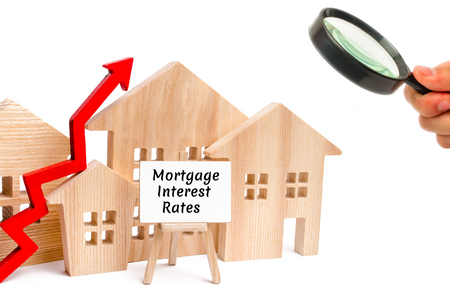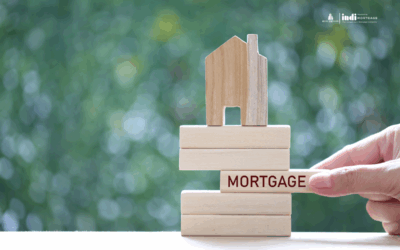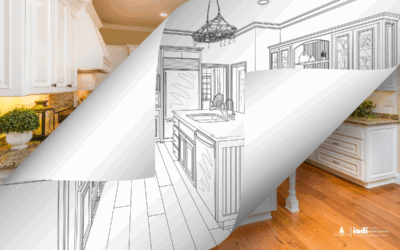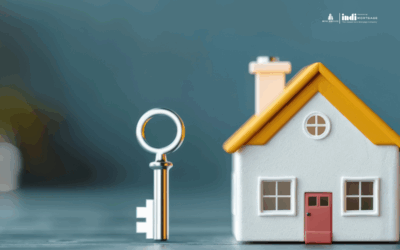Welcome To Our Mortgage Educational Blog About:
Understanding Mortgage Interest

Making a home purchase remains to be one of the biggest financial decisions most people make, especially if it is on mortgage. And to be on the safer side, the same scrutiny that is put into deciding which home is most ideal for you is also required during the mortgage acquisition process.
As a first time home buyer, you should purpose to secure a mortgage with the best interest rates. It is important to note that lower rates mean your monthly payments will also be on the lower side and this consequently lessens your mortgage costs.
This article will reveal everything you need to know about mortgage interest so you get to secure a mortgage with the best rates… With that said, let’s dive in!
Different types of mortgage interest rates
Technically, there are two types of mortgages:
Fixed interest rate mortgage
The interest charged remains constant for a couple of years mostly between two to five years. A fixed interest rate may be more ideal for the following reasons:
- In case you want to maintain a steady interest rate
- If there is any possibility that the market interest rates may be raised
- In order to retain similar payments during the entire period of your mortgage
- To have prior knowledge of how much principal you will be paying back at the end of your term. The current mortgage rate for fixed rate is 5.570%
Variable interest rate mortgage
For this type of mortgage, the interest rates are susceptible to change. They can either increase or decrease in the course of your term.
Choosing a variable interest rate over a fixed rate means that your rate may be lower. The lenders recalculate your monthly payment based on whether rates go up or down.
Another common mortgage type is:
Interest only loans
This option is usually an interest only mortgage. As the name suggests, this loan provides you with the alternative to pay interest solely for the first years and this brings about lower monthly payments.
This is usually reserved for those with irregular income and wealthy home buyers. It is also a suitable choice for those planning on owning a home for a short time and then selling it before the bigger monthly payments settle in.
However, there are a few appraisal issues that may put your pre-approved mortgage at risk. These include:
Factors that affect interest rates
There are many factors that can affect the amount of interest you get charged with. Some of them include:
- Your credit scores
- Type of loan
- The amount and duration of time
- Federal policy
- Geographic location of the property
- The size of your down payment
- Inflation
- Income and employment history
- The stock markets
How Mortgage Interest works
Whilst you continue to repay your mortgage, monthly payments are made with regards to your loan’s amortization schedule. In other words, your mortgage interest is a percentage of your balance.
In the beginning, a bigger chunk of your payment is allocated to interest. Over time, as your loan matures, a bigger part of your payment goes to the principal.
If for instance you took on a 30-year fixed interest rate mortgage and the balance stands at $300,000 with an interest rate of 5% then this would mean that your monthly repayment, which comprises of both principal and interest would continue to be $1,610 for the entire period of the mortgage but as for the first payment, $360 would go towards the principal and $1,250 would be allocated to interest.
The distributions are interchanged somewhere around the 16th year. As a result, roughly $807 of your remittance goes to the principal and approximately $803 to the interest.
Thereafter, more payment will be made toward the principal and less is made towards interest up until the mortgage is fully repaid.
If the mortgage is a variable rate, the payment will also change as often as the interest rate on the loan changes.
Mortgage rates have no direct impact on home prices however they affect housing supply, and this is a key factor in pricing.
The probability of already existing homeowners putting out their property in the market as mortgage rates increase is almost next to zero. This holding back brings about scarcity in the sale of properties and this causes a rise in demand and eventually prices also rise.
This is especially so because homeowners prefer to sell their property when rates are low.
So, how can you get the best mortgage rate? Read on to find out…
How to get the best mortgage rate
There are a few proven ways you can use to secure the best mortgage rate. Some of them include:
- Improving your credit scores and reports – lenders offer their lowest rates to clients with strong credit scores. Conducting a review of your credit reports and looking for inaccuracies on any item that might be causing your low score is therefore absolutely necessary. Another booster would be paying your bills in time and reducing your credit utilization ratio
- Considering a shorter loan term – interest rates are usually lower
- Saving more for down payment – setting aside more money can help you secure a much lower rate
- Working with lenders – this can be achieved by applying with multiple lenders and seeing who offers the best rate
- Keeping an eye on mortgage rates – as small as the short-term changes might seem, you want to lock your rate when it is at an affordable level
- Deciding on whether to pay points – it comes in handy if you intend on staying in the home long term and do not plan on refinancing for at least five years. One point is equivalent to 1% of your total loan balance. The amount by which it lowers your interest rate is dependent on your individual lender and the market at the given time
- Building a record of your work history – having at least two years of consistent employment up your sleeve puts you at a better chance of getting approved for the best possible rate. Self employed individuals and people with gaps in their work history will be required to provide more paperwork
Conclusion
The decision on what mortgage you will settle for goes beyond simply looking at the monthly repayments. Having a proper understanding of what costs you will incur as a result of your interest payments in the event that rates increase and the effect this would have on your repayments is far more important.
There is no particular definition of a good mortgage rate since rates are constantly fluctuating. What you can do though is shop around for quotes that are categorically tailored to your needs in order to find a good rate.
If you would wish to inquire more on this topic, don’t hesitate to contact us.
Are you ready to purchase your first home, second home, or a new home? Reach out to me directly or start your application here: www.sandraforscutt.ca/mortgage-application/
Don’t hesitate to contact us with any questions you may have.
Recent Educational Blogs
25-Year vs. 30-Year Mortgage
June 2025 | 25-Year vs. 30-Year MortgageIf you’re thinking about buying a home, one of the biggest decisions you’ll face is choosing your mortgage’s amortization period. Should you go for the traditional 25-year mortgage or take advantage of the newer, longer 30-year...
Thinking About Flipping a House in Edmonton?
May 2025 | Flip Mortgage ProgramAre you eyeing that “fixer-upper” in Edmonton and dreaming of turning it into a showstopper? House flipping is more popular than ever, and with the right mortgage program, it’s easier to get started than you might think!What is a Flip...
Unlocking the Value in Your Home
April 2025 | Home Equity Unlocking the value in your home can be a smart way to fund major renovations or get a handle on high-interest debt. If you’ve built up equity—the difference between your home’s current value and what you still owe on your mortgage—you may be...



